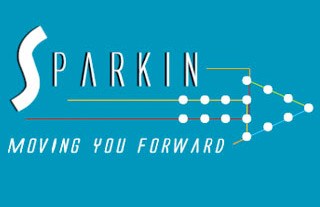2020 – Job Security and Success
In a perfect world you enjoy most of your working day but an October 2019 Gallop Poll suggests 60% of employees don’t!
There’s no rocket science in saying, if you like your job you put more in to it and show up therefore, more enthusiastic if not more effective than your peers.
The challenges I believe for strategic planners presents great opportunity in 2020 but the uncertainty pervading the advertising industry is palpable and good planners lose jobs. Why? Many reasons notably, an underappreciation of the value of strategy combined with factors that effect every employee, a P&L run month to month and oriented around winning (and losing) business.
What to do to enhance your job security and more positive, to enhance your value and career opportunity:
1. Business Mindset – Be aware how and where your agency makes money even if it’s not your job to do so.
2. Follow the money – Keep close (if you can) to the money/valuable clients.
3. Generate revenue – Help make existing clients more valuable or be involved in getting new clients.
4. Leadership direction – Keep close to the pulse of the agency and what’s perceived as key now and going forward.
5. Team Player – Work closely with and in the development of others.
Finally, have a sense as to what the market and clients consider as key core (hard and soft) skills in the year ahead.
Onwards,
Stuart
Articles and commentary that might be of interest…
Pivotal To Your Career Success
Many of you are capable of brilliance, a brilliant strategy that helps win a pitch or propels an existing client forward. But, can such quality thinking be replicated on a consistent basis? It’s this consistency that leads to greatness. Great reputation and with it, great opportunities for career success.
Why do some have greater consistency than others? Is it different talent, experience, work-rate, support network, determination? Perhaps it’s the significance of the outcome (pressure) or something more fundamental, the challenge of forming habits, of being able to consistently change your behaviour.
The truth is, everything that matters we want to be consistent. And what does consistency give you in a career context. To name a few:
- It builds reputation – When you consistenly deliver, people take note and you become the ‘go to’ person.
- Amplifies skills – It’s well documented that mastery arises from persistently repeated activity and the nuanced learning that comes from this.
- Builds Self-Belief – When you are able to consistently deliver something, that’s empowering. When you know others know it, that’s validating and further confidence boosting.
- Achieves results – Reliability builds momentum which backed up by planning and resources, leads to results.
- Builds relationships – Bosses and consumers seek consistency and when it exists, so relationships begin to form.
For more on why we fail to be and how we can become more consistent, a few links attached.
Onwards,
Stuart Parkin/SPARKIN
Articles and commentary that might be of interest…
Struggling to be Consistent
- Why do people struggle to be consistent?
- How to be consistent in 4 steps
- How to be outrageously consistent
Why consistency is Important
- Consistency in action. Is it the hidden driver of success?
- Power of consistency – 5 Rules
- Purposeful consistency with the right mindset = Unstoppable
- Consistency: The key to Success
Consistency – Getting Motivated
Greetings Friend,
You are receiving ‘Narrate’ a newsletter designed to inform/help you, the most recent edition was based on the issue of chronic self-doubt or ‘impostor syndrome.’ This subject and all that I write about are based on weekly conversations with your strategic problem solving peers.
Other recent newsletters have addressed: Mental Health, Ageism, excessive stress, biased thinking (anathema if you’re paid to be objective!) and effective listening. The newsletter unlike my writing on social media, includes links to allow for broader reading on subject matter addressed.
If there’s any subject that you’d be interested on my writing about, please let me know and I’d be happy to address.
Sincere best wishes,
SPARKIN
Revisit Previous Newsletters
- Imposter Syndrome – Managing Chronic Self Doubt – September 2019
- Ageism – Is It About Our Age? – July 2019
- Excessive Stress – We’re All Vulnerable – May 2019
- Biased Thinking – The Anti-Strategist – March 2019
- Effective Listening – But How? – January 2019
- Personal Branding – Why Your Livelihood Depends On It – September 2018
- The Future of Advertising is Positive – June 2018
- The Ever Transactional Market for Strategic Talent – May 2018
- Adaptability = Career Success? – April 2018
- Job Security – Do we ever have it? – January 2018
- Agency to Client-Side Means What? – November 2017
- A ‘Complete’ Strategic Planner? – September 2017
- Strategic Planning Jobs – Where are they going? – July 2017
- Humor and Building Brands – June 2017
- Integrated Thinking and Polymaths – April 2017
- Purpose Driven Brands and Strategy – March 2017
- Being a Good Boss – February 2017
- View Complete Newsletter Archive
Your Dance. But Which One?
‘Life is the dancer and you are the dance.’ (Eckhart Tolle)
So will it be the funeral March, the salsa or the samba?
Your life, Your choice.
Moral of story, know to what end you’re working for.
If it’s the joy of the job; Great If it’s hard work but it helps you climb the ladder; Fine.
If it’s torturous work and taking you no-where, get out. As even if it’s all for the family, in this context you will suffer and so will they.
hashtag#strategicplanninghashtag#lifecoachhashtag#Dancehashtag#Yourchoicehashtag#exotictravelhashtag#travelphotographyhashtag#travelinghashtag#Meaninghashtag#strategichashtag#strategiclivinghashtag#Onelife












